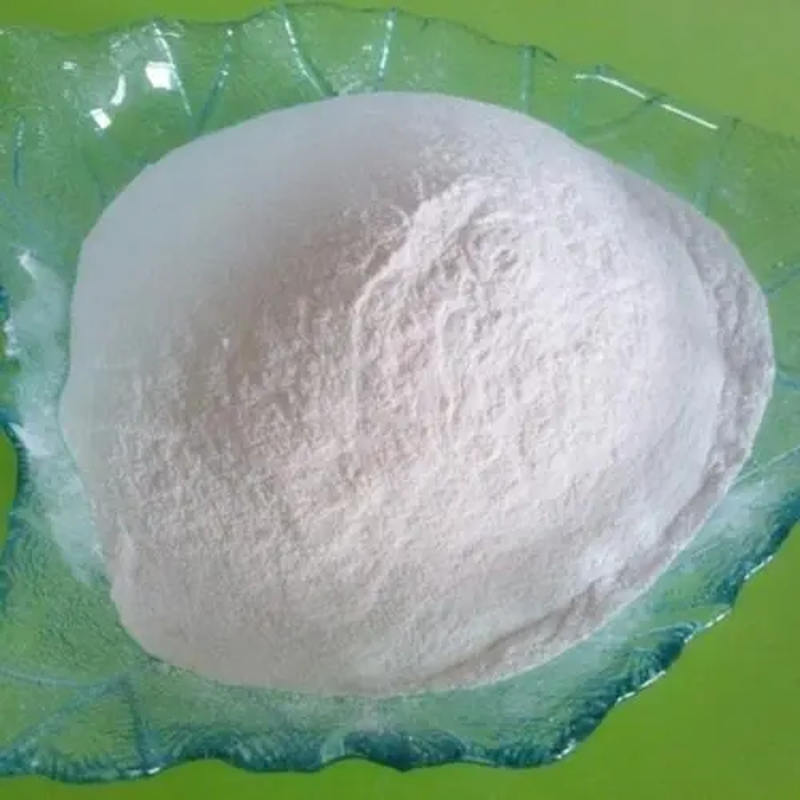-
Categories
-
Pharmaceutical Intermediates
-
Active Pharmaceutical Ingredients
-
Food Additives
- Industrial Coatings
- Agrochemicals
- Dyes and Pigments
- Surfactant
- Flavors and Fragrances
- Chemical Reagents
- Catalyst and Auxiliary
- Natural Products
- Inorganic Chemistry
-
Organic Chemistry
-
Biochemical Engineering
- Analytical Chemistry
- Cosmetic Ingredient
-
Pharmaceutical Intermediates
Promotion
ECHEMI Mall
Wholesale
Weekly Price
Exhibition
News
-
Trade Service
Yimaitong compiles and organizes, please do not reprint without authorization
.
The prevalence of methicillin-resistant Staphylococcus aureus (MRSA) infection is a serious clinical medicine and public health problem
.
In early 2021, the UK MRSA infection treatment guidelines were updated, and the main recommendations of the guidelines are as follows
.
Impetigo 1.
In order to prevent the development of antimicrobial resistance, consider alternatives to topical fusidic acid or mupirocin, such as topical antiseptics (1% hydrogen peroxide cream) for the treatment of local infections caused by MRSA The limitations of the disease, non-bulus, and the patient's clinical condition is good for impetigo
.
Only when MRSA isolates are known to be susceptible, topical fusidic acid or mupirocin can be considered as a second-line treatment option
.
(Weak recommendation) 2.
When systemic antibacterial treatment is used to treat complex impetigo, the choice of drugs is determined by the results of the drug sensitivity test
.
(Strong recommendation) Abscess 1.
Abscess caused by MRSA should be treated with incision and drainage
.
(Strong recommendation) 2.
For abscesses caused by MRSA, if the diameter is less than 5cm, and the patient does not have systemic reactions (fever and/or cellulitis) and/or immunodeficiency, including neutropenia and cellular immune deficiency, no Antibiotic treatment should be routinely applied
.
(Strong recommendation) 3.
Abscesses caused by MRSA PFGE USA300 strains, or when the strains are common strains, should be treated with antibiotics combined with incision and drainage
.
(Strong recommendation) 4.
When oral treatment is needed and MRSA is a known susceptible strain, oral clindamycin or compound trimethoprim
.
(Strong recommendation) Other skin and skin structure infections 1.
For severe cellulitis/soft tissue infections caused by MRSA, intravenous glycopeptide antibiotic therapy (vancomycin/teicoplanin) (strong recommendation) 2.
Linezolid (Oral or intravenous) or daptomycin (intravenous) as alternatives
.
(Strong recommendation) 3.
When the first-line and second-line drugs have contraindications and the isolated flora is susceptible, the application of tigecycline can be considered
.
(Weak recommendation) 4.
For patients with mild skin and soft tissue infections caused by MRSA, consider oral clindamycin, compound trimethoprim or doxycycline (susceptible to isolate flora) or oral degrading treatment
.
(Weak recommendation) 5.
Consider applying recently approved drugs, such as ceftaroline, drafloxacin, oritavancin or telavancin, as an alternative treatment option for cellulitis/soft tissue infection caused by MRSA
.
(Weak recommendation) 6.
In the treatment of skin and soft tissue infections (SSTI) caused by MRSA, there is no recommendation for the use of cefepipp, dalbavancin and terdizolamide compared with standard treatment drugs
.
Urinary Tract Infection (UTI) 1.
MRSA isolated in urine should be ruled out of MRSA bacteremia before starting treatment
.
(Weak recommendation) 2.
Consider using oral drugs based on drug sensitivity, such as doxycycline, trimethoprim, ciprofloxacin or compound trimethoprim, to treat lower urinary tract infections caused by MRSA
.
(Weak recommendation) 3.
For complicated UTI caused by MRSA, consider intravenous glycopeptide antibiotics (vancomycin or tecoran) as the first-line treatment
.
(Weak recommendation) 4.
When there are contraindications to glycopeptide drugs, if intravenous medication is needed, consider using daptomycin as an alternative
.
(Weak recommendation) 5.
Linezolid is not recommended to treat UTI caused by MRSA, because it is poorly excreted by the kidneys
.
(Weak recommendation) 6.
For catheter-related UTI caused by MRSA, if MRSA isolates are known to be susceptible, the catheter should be replaced as much as possible, with or without a single dose of gentamicin
.
(Weak recommendation) 7.
If the isolates are resistant to gentamicin or there are other contraindications, consider using single-dose glycopeptide drugs (vancomycin or teicoplanin) as an alternative
.
(Weak recommendation) Bone and joint infections 1.
Adopt a multidisciplinary approach to treat bone and joint infections caused by MRSA, including surgery or drainage
.
(Strong recommendation) 2.
For bone and joint infections caused by MRSA, intravenous glycopeptide drugs (vancomycin or teicoplanin) are used as first-line treatment options
.
(Strong recommendation) 3.
Consider intravenous use of glycopeptide drugs (vancomycin or teicoplanin) for 2 weeks, and then further intravenous or oral antibiotics, complete the total course of septic arthritis at least 4 weeks or osteomyelitis at least 6 weeks The total course of treatment
.
(Weak recommendation) 4.
Use therapeutic drug monitoring to ensure non-toxicity and achieve the initial therapeutic dose serum concentration, vancomycin 15-20 mg/L or teicoplanin 20-40 mg/L
.
(Strong recommendation) 5.
When glycopeptide drugs are contraindicated, consider using daptomycin (6 mg/kg) or linezolid as an alternative drug
.
(Weak recommendation) 6.
When MRSA isolates are known to be susceptible, use clindamycin, compound trimethoprim, doxycycline or linezolid as oral drugs to complete the treatment
.
(Strong recommendation) 7.
Do not use rifampicin, fusidic acid or quinolone as a single oral drug, and should be used in combination with other drugs that are sensitive to the isolated flora
.
(Strong recommendation) Bacteremia 1.
Intravenous injection of vancomycin to treat simple bacteremia caused by MRSA
.
(Strong recommendation) 2.
When vancomycin is contraindicated, linezolid should be used as an alternative to first-line treatment
.
(Strong recommendation) 3.
Do not use compound trimethoprim alone as the first-line treatment for MRSA bacteremia, but when it is known that MRSA isolates are susceptible, you can consider using this drug as an oral degrading treatment
.
(Weak recommendation) 4.
Consider at least 14 days of antibiotic treatment for simple bacteremia, and at least 28 days for complex bacteremia caused by MRSA
.
(Weak recommendation) Necrotizing pneumonia 1.
For necrotizing pneumonia caused by MRSA, intravenous vancomycin or linezolid is used for treatment
.
(Strong recommendation) 2.
When the isolated strain of MRSA is known to be susceptible, consider adding a toxin inhibitor, such as clindamycin or rifampicin
.
(Weak recommendation) Hospital-acquired pneumonia 1.
In the absence of at least one additional randomized controlled trial (RCT) confirming that linezolid is superior to vancomycin in the treatment of hospital-acquired pneumonia caused by MRSA, ideally, due to The risk of bias is low, and intravenous vancomycin or linezolid is recommended as first-line treatment
.
(Weak recommendation) 2.
Daptomycin cannot be used to treat hospital-acquired pneumonia caused by MRSA because it can be inactivated by lung surfactants
.
(Strong recommendation) 3.
In the treatment of HAP caused by MRSA, compared with standard treatment drugs, there is no recommendation on the application of cefepime
.
Ear, nose, throat or upper respiratory tract infections 1.
For severe MRSA-related ear, nose, throat or upper respiratory tract infections, consider intravenous glycopeptide antibiotics (vancomycin or teicoplanin) or linezolid
.
(Weak recommendation) 2.
For minor infections, when MRSA isolates are known to be susceptible, oral compound trimethoprim or doxycycline can be considered
.
(Weak recommendation) Intracranial or spinal infection 1.
As long as clinically possible, it is necessary to control the source of infection of intracranial and spinal infection
.
(Strong recommendation) 2.
In the absence of neurological dysfunction, consider using antibiotics alone to treat small epidural abscesses
.
(Weak recommendation) 3.
For intracranial and spinal infections caused by MRSA, consider intravenous vancomycin or linezolid as a first-line treatment option
.
(Weak recommendation) Meningitis 1.
For meningitis caused by MRSA, take intravenous vancomycin treatment (strong recommendation)
.
Rifampicin can be added to serious infections based on susceptibility
.
(Weak recommendation) 2.
Use therapeutic drug monitoring to ensure that it is non-toxic and reaches the initial serum concentration of vancomycin treatment (15-20 mg/L)
.
(Strong recommendation) 3.
For critically ill patients, or when the patient's intravenous vancomycin is not effective, the patient should be transferred to the neurosurgery center for direct injection of vancomycin into the ventricle
.
(Strong recommendation) 4.
Clindamycin, chloramphenicol or linezolid cannot be used to treat meningitis caused by MRSA (strong recommendation)
.
These drugs do not have the need for antibiotics to treat meningitis patients
.
5.
In this clinical situation, there is no recommendation for the use of teicoplanin
.
Eye infections 1.
For superficial MRSA eye disease, consider using gentamicin or chloramphenicol eye drops based on the sensitivity of the isolated flora
.
(Weak recommendation) 2.
When the patient is diagnosed with endophthalmitis caused by MRSA, consider disseminated infection secondary to bacteremia
.
(Strong recommendation) 3.
For deep eye infections caused by MRSA, consider a multidisciplinary treatment method composed of ophthalmologists and infection experts
.
(Weak recommendation) 4.
For deep eye infections caused by MRSA, consider intravitreal injection of vancomycin and systemic use of quinolones based on sensitivity
.
(Weak recommendation) 5.
Consider oral linezolid as a treatment option, given that there is limited evidence of effectiveness for MRSA infections at this site
.
(Weak recommendation) Reference source: Brown NM, Goodman AL, et al.
Treatment of methicillin-resistant Staphylococcus aureus (MRSA): updated guidelines from the UK.
JAC Antimicrob Resist.
2021 Feb 3;3(1):dlaa114.
doi: 10.
1093/jacamr/dlaa114.
.
The prevalence of methicillin-resistant Staphylococcus aureus (MRSA) infection is a serious clinical medicine and public health problem
.
In early 2021, the UK MRSA infection treatment guidelines were updated, and the main recommendations of the guidelines are as follows
.
Impetigo 1.
In order to prevent the development of antimicrobial resistance, consider alternatives to topical fusidic acid or mupirocin, such as topical antiseptics (1% hydrogen peroxide cream) for the treatment of local infections caused by MRSA The limitations of the disease, non-bulus, and the patient's clinical condition is good for impetigo
.
Only when MRSA isolates are known to be susceptible, topical fusidic acid or mupirocin can be considered as a second-line treatment option
.
(Weak recommendation) 2.
When systemic antibacterial treatment is used to treat complex impetigo, the choice of drugs is determined by the results of the drug sensitivity test
.
(Strong recommendation) Abscess 1.
Abscess caused by MRSA should be treated with incision and drainage
.
(Strong recommendation) 2.
For abscesses caused by MRSA, if the diameter is less than 5cm, and the patient does not have systemic reactions (fever and/or cellulitis) and/or immunodeficiency, including neutropenia and cellular immune deficiency, no Antibiotic treatment should be routinely applied
.
(Strong recommendation) 3.
Abscesses caused by MRSA PFGE USA300 strains, or when the strains are common strains, should be treated with antibiotics combined with incision and drainage
.
(Strong recommendation) 4.
When oral treatment is needed and MRSA is a known susceptible strain, oral clindamycin or compound trimethoprim
.
(Strong recommendation) Other skin and skin structure infections 1.
For severe cellulitis/soft tissue infections caused by MRSA, intravenous glycopeptide antibiotic therapy (vancomycin/teicoplanin) (strong recommendation) 2.
Linezolid (Oral or intravenous) or daptomycin (intravenous) as alternatives
.
(Strong recommendation) 3.
When the first-line and second-line drugs have contraindications and the isolated flora is susceptible, the application of tigecycline can be considered
.
(Weak recommendation) 4.
For patients with mild skin and soft tissue infections caused by MRSA, consider oral clindamycin, compound trimethoprim or doxycycline (susceptible to isolate flora) or oral degrading treatment
.
(Weak recommendation) 5.
Consider applying recently approved drugs, such as ceftaroline, drafloxacin, oritavancin or telavancin, as an alternative treatment option for cellulitis/soft tissue infection caused by MRSA
.
(Weak recommendation) 6.
In the treatment of skin and soft tissue infections (SSTI) caused by MRSA, there is no recommendation for the use of cefepipp, dalbavancin and terdizolamide compared with standard treatment drugs
.
Urinary Tract Infection (UTI) 1.
MRSA isolated in urine should be ruled out of MRSA bacteremia before starting treatment
.
(Weak recommendation) 2.
Consider using oral drugs based on drug sensitivity, such as doxycycline, trimethoprim, ciprofloxacin or compound trimethoprim, to treat lower urinary tract infections caused by MRSA
.
(Weak recommendation) 3.
For complicated UTI caused by MRSA, consider intravenous glycopeptide antibiotics (vancomycin or tecoran) as the first-line treatment
.
(Weak recommendation) 4.
When there are contraindications to glycopeptide drugs, if intravenous medication is needed, consider using daptomycin as an alternative
.
(Weak recommendation) 5.
Linezolid is not recommended to treat UTI caused by MRSA, because it is poorly excreted by the kidneys
.
(Weak recommendation) 6.
For catheter-related UTI caused by MRSA, if MRSA isolates are known to be susceptible, the catheter should be replaced as much as possible, with or without a single dose of gentamicin
.
(Weak recommendation) 7.
If the isolates are resistant to gentamicin or there are other contraindications, consider using single-dose glycopeptide drugs (vancomycin or teicoplanin) as an alternative
.
(Weak recommendation) Bone and joint infections 1.
Adopt a multidisciplinary approach to treat bone and joint infections caused by MRSA, including surgery or drainage
.
(Strong recommendation) 2.
For bone and joint infections caused by MRSA, intravenous glycopeptide drugs (vancomycin or teicoplanin) are used as first-line treatment options
.
(Strong recommendation) 3.
Consider intravenous use of glycopeptide drugs (vancomycin or teicoplanin) for 2 weeks, and then further intravenous or oral antibiotics, complete the total course of septic arthritis at least 4 weeks or osteomyelitis at least 6 weeks The total course of treatment
.
(Weak recommendation) 4.
Use therapeutic drug monitoring to ensure non-toxicity and achieve the initial therapeutic dose serum concentration, vancomycin 15-20 mg/L or teicoplanin 20-40 mg/L
.
(Strong recommendation) 5.
When glycopeptide drugs are contraindicated, consider using daptomycin (6 mg/kg) or linezolid as an alternative drug
.
(Weak recommendation) 6.
When MRSA isolates are known to be susceptible, use clindamycin, compound trimethoprim, doxycycline or linezolid as oral drugs to complete the treatment
.
(Strong recommendation) 7.
Do not use rifampicin, fusidic acid or quinolone as a single oral drug, and should be used in combination with other drugs that are sensitive to the isolated flora
.
(Strong recommendation) Bacteremia 1.
Intravenous injection of vancomycin to treat simple bacteremia caused by MRSA
.
(Strong recommendation) 2.
When vancomycin is contraindicated, linezolid should be used as an alternative to first-line treatment
.
(Strong recommendation) 3.
Do not use compound trimethoprim alone as the first-line treatment for MRSA bacteremia, but when it is known that MRSA isolates are susceptible, you can consider using this drug as an oral degrading treatment
.
(Weak recommendation) 4.
Consider at least 14 days of antibiotic treatment for simple bacteremia, and at least 28 days for complex bacteremia caused by MRSA
.
(Weak recommendation) Necrotizing pneumonia 1.
For necrotizing pneumonia caused by MRSA, intravenous vancomycin or linezolid is used for treatment
.
(Strong recommendation) 2.
When the isolated strain of MRSA is known to be susceptible, consider adding a toxin inhibitor, such as clindamycin or rifampicin
.
(Weak recommendation) Hospital-acquired pneumonia 1.
In the absence of at least one additional randomized controlled trial (RCT) confirming that linezolid is superior to vancomycin in the treatment of hospital-acquired pneumonia caused by MRSA, ideally, due to The risk of bias is low, and intravenous vancomycin or linezolid is recommended as first-line treatment
.
(Weak recommendation) 2.
Daptomycin cannot be used to treat hospital-acquired pneumonia caused by MRSA because it can be inactivated by lung surfactants
.
(Strong recommendation) 3.
In the treatment of HAP caused by MRSA, compared with standard treatment drugs, there is no recommendation on the application of cefepime
.
Ear, nose, throat or upper respiratory tract infections 1.
For severe MRSA-related ear, nose, throat or upper respiratory tract infections, consider intravenous glycopeptide antibiotics (vancomycin or teicoplanin) or linezolid
.
(Weak recommendation) 2.
For minor infections, when MRSA isolates are known to be susceptible, oral compound trimethoprim or doxycycline can be considered
.
(Weak recommendation) Intracranial or spinal infection 1.
As long as clinically possible, it is necessary to control the source of infection of intracranial and spinal infection
.
(Strong recommendation) 2.
In the absence of neurological dysfunction, consider using antibiotics alone to treat small epidural abscesses
.
(Weak recommendation) 3.
For intracranial and spinal infections caused by MRSA, consider intravenous vancomycin or linezolid as a first-line treatment option
.
(Weak recommendation) Meningitis 1.
For meningitis caused by MRSA, take intravenous vancomycin treatment (strong recommendation)
.
Rifampicin can be added to serious infections based on susceptibility
.
(Weak recommendation) 2.
Use therapeutic drug monitoring to ensure that it is non-toxic and reaches the initial serum concentration of vancomycin treatment (15-20 mg/L)
.
(Strong recommendation) 3.
For critically ill patients, or when the patient's intravenous vancomycin is not effective, the patient should be transferred to the neurosurgery center for direct injection of vancomycin into the ventricle
.
(Strong recommendation) 4.
Clindamycin, chloramphenicol or linezolid cannot be used to treat meningitis caused by MRSA (strong recommendation)
.
These drugs do not have the need for antibiotics to treat meningitis patients
.
5.
In this clinical situation, there is no recommendation for the use of teicoplanin
.
Eye infections 1.
For superficial MRSA eye disease, consider using gentamicin or chloramphenicol eye drops based on the sensitivity of the isolated flora
.
(Weak recommendation) 2.
When the patient is diagnosed with endophthalmitis caused by MRSA, consider disseminated infection secondary to bacteremia
.
(Strong recommendation) 3.
For deep eye infections caused by MRSA, consider a multidisciplinary treatment method composed of ophthalmologists and infection experts
.
(Weak recommendation) 4.
For deep eye infections caused by MRSA, consider intravitreal injection of vancomycin and systemic use of quinolones based on sensitivity
.
(Weak recommendation) 5.
Consider oral linezolid as a treatment option, given that there is limited evidence of effectiveness for MRSA infections at this site
.
(Weak recommendation) Reference source: Brown NM, Goodman AL, et al.
Treatment of methicillin-resistant Staphylococcus aureus (MRSA): updated guidelines from the UK.
JAC Antimicrob Resist.
2021 Feb 3;3(1):dlaa114.
doi: 10.
1093/jacamr/dlaa114.







